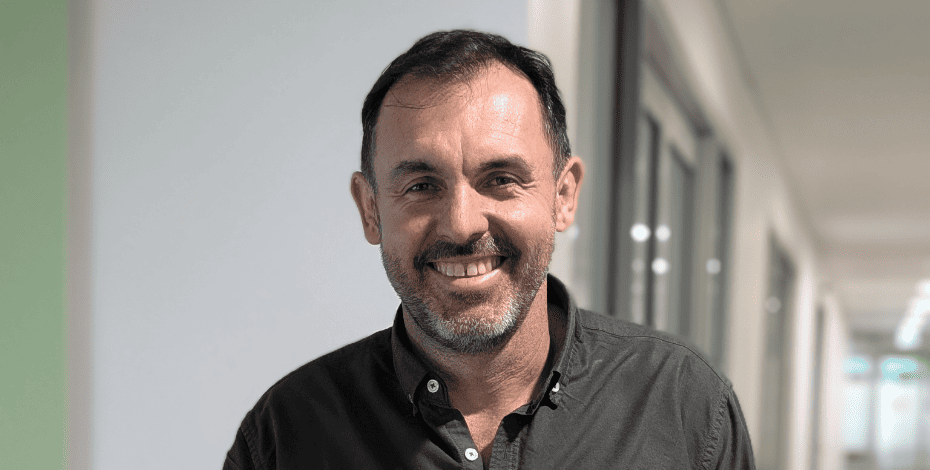
Giving back

Three years after completing the career pathway, Dr Darren Doherty is mentoring the next generation of pain clinicians in the specialisation training program.
For Queensland-based Specialist Pain Physiotherapist (as awarded by the Australian College of Physiotherapists in 2021) Dr Darren Doherty FACP, the decision to pursue specialisation in pain management was a pivotal moment in his career.
As someone who had been working in the field for more than a decade, Darren says he had grown quite comfortable in his clinical practice.
When the opportunity for specialised training arose, he knew it was time to take on a new challenge.
‘I was excited when the Specialist Pain Physiotherapist credential became available in 2018 via the Australian College of
Physiotherapists,’ recalls Darren.
‘It was something we needed in the profession and I felt privileged to be part of the inaugural group.’
His cohort was a diverse one, with clinicians hailing from backgrounds in everything from public health to workers compensation.
Despite their varied experiences, the group quickly bonded, providing crucial support to one another throughout the rigorous training.
‘What was great about our cohort was that we came from quite different backgrounds but we gelled regardless of that,’ Darren says.
‘We became a chosen family, in a way—receiving the kind of support you can’t always get from your actual family when studying.’
That sense of camaraderie proved invaluable as he navigated the challenges of the specialisation training program (STP).
In a pivotal moment, he received feedback from a facilitator that, while his patients clearly adored him, rapport alone wasn’t enough to get them better.
‘That really resonated with me.
'It made me realise that I wasn’t challenging these patients enough and that there was more I could be doing to truly help them.’
The feedback sparked a period of self-reflection in which Darren recognised habits and tendencies in his clinical work that he hadn’t previously been aware of.
Through techniques such as video recording patient interactions (this was during COVID-19), he gained a new level of awareness about his communication style and treatment approaches.
‘You don’t know what you don’t know,’ he explains.
‘Having specialists watch my work and provide feedback was invaluable in raising my awareness of things I was doing—whether it was the way I communicated or the techniques I used—that I could improve.’
Embracing this feedback, even when it was difficult, became a key part of Darren’s specialisation journey.
He learned to step back from the ‘dance floor’ of his daily clinical work and gain a broader perspective from ‘the balcony’, allowing him to be more objective about areas needing refinement.
‘It’s not easy to have your identity as a clinician challenged but I realised I couldn’t take the feedback personally,’ Darren says.
‘Once I got past that, I was able to grow in ways I never expected.
‘I’m much more confident clinically across a broader spectrum of conditions and issues and I’ve embedded the tools to continue to improve… I’m doing things in a continuous improvement cycle.’
That growth has manifested not only in his own clinical practice but also in his role as a mentor and team leader in Gold Coast Health’s Interdisciplinary Persistent Pain Centre.
He joined the centre in 2011, graduating the following year from Griffith University with a Master of Musculoskeletal and Sports Physiotherapy.
He has been teaching physiotherapy—in particular, pain neuroscience and its clinical applications—at the university since 2020.
Darren has a keen interest in innovative health management via technology and leads research and projects in the use of virtual reality.
His team of pain physiotherapists works with pain specialists, psychiatrists, allied health workers and nurses to support people living with chronic pain.
© Copyright 2024 by Australian Physiotherapy Association. All rights reserved.





